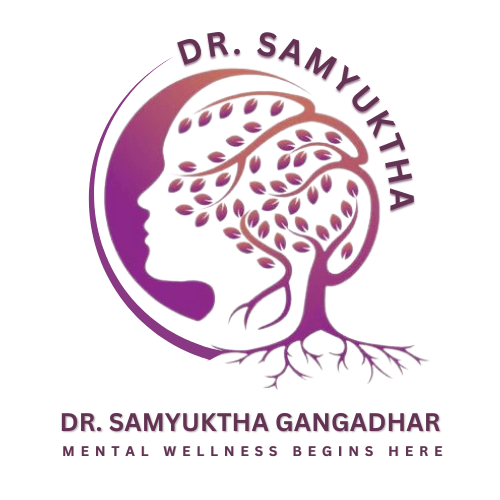Anger Issue Treatment: Understanding Root Causes and Solutions

Introduction
Anger is a natural emotion, but when it becomes uncontrollable or frequent, it can impact personal relationships, work, and overall health. Understanding the root causes and seeking appropriate treatment is essential. Dr. Samyuktha, a renowned psychiatrist, offers expert online consultation for anger issues through Pushpa Mindcare. This comprehensive guide delves into the causes of anger issues and effective treatment solutions to help individuals regain control over their emotions.
Understanding Anger Issues

What are Anger Issues?
Anger issues refer to the inability to manage anger in a healthy way. This can manifest as frequent outbursts, aggression, or even internalized anger, leading to stress and other health problems. Recognizing the signs early can prevent long-term consequences.
Root Causes of Anger Issues
Psychological Factors
- Trauma: Past traumatic experiences can lead to unresolved anger.
- Mental Health Disorders: Conditions such as depression, anxiety, and PTSD can contribute to anger issues.
- Stress: Chronic stress from work, relationships, or financial problems can trigger anger.
Environmental Factors
- Family Dynamics: Growing up in a household where anger is a common response can influence behavior.
- Societal Pressure: Social and cultural expectations can exacerbate feelings of frustration and anger.
- Substance Abuse: Alcohol and drug use can impair judgment and increase irritability.
Biological Factors
- Genetics: A family history of anger issues can predispose individuals to similar problems.
- Brain Chemistry: Imbalances in neurotransmitters such as serotonin can affect mood regulation.
Signs and Symptoms of Anger Issues
Recognizing the signs of anger issues is crucial for seeking appropriate help. Common symptoms include:
- Frequent arguments or conflicts
- Physical aggression or violence
- Feelings of intense frustration or rage
- Difficulty calming down after an outburst
- Guilt or regret after losing temper
Treatment Options for Temper Issues

1. Therapy and Counseling
Therapy is a cornerstone in the treatment of rage issues. Dr. Samyuktha offers various therapeutic approaches to help individuals manage their anger effectively:
- Cognitive Behavioral Therapy (CBT): CBT helps patients identify and change negative thought patterns that lead to anger.
- Dialectical Behavior Therapy (DBT): DBT focuses on teaching coping skills to manage emotions and reduce impulsive behavior.
- Psychodynamic Therapy: This therapy explores underlying emotional conflicts and past experiences contributing to anger.
2. Medication
In some cases, medication may be prescribed to help manage symptoms of anger. These can include:
- Antidepressants: Used to treat underlying depression or anxiety.
- Mood Stabilizers: Help regulate mood swings and reduce irritability.
- Antipsychotics: Used in severe cases to control aggressive behavior.
3. Lifestyle Changes
Implementing lifestyle changes can significantly impact anger management. Recommendations include:
- Regular Exercise: Physical activity helps reduce stress and improve mood.
- Healthy Diet: A balanced diet can influence overall well-being and mood stability.
- Sleep Hygiene: Ensuring adequate sleep can help regulate emotions.
Practical Ways of Anger Management
1. Mindfulness and Relaxation Techniques
Practicing mindfulness can help individuals become more aware of their emotions and reactions. Techniques include:
- Deep Breathing: Helps calm the nervous system and reduce immediate anger responses.
- Meditation: Regular practice can improve emotional regulation and self-awareness.
- Progressive Muscle Relaxation: Reduces physical tension associated with anger.
2. Communication Skills

Improving communication can prevent misunderstandings and reduce conflict. Key strategies include:
- Active Listening: Ensures understanding and reduces frustration.
- Assertiveness Training: Teaches how to express needs and feelings without aggression.
- Conflict Resolution: Helps find mutually beneficial solutions during disagreements.
3. Cognitive Restructuring
Changing negative thought patterns is essential for managing anger. Steps include:
- Identifying Triggers: Recognize situations or thoughts that lead to anger.
- Challenging Negative Thoughts: Question the validity and impact of these thoughts.
- Developing Positive Alternatives: Replace negative thoughts with constructive ones.
Seeking Professional Help
Benefits of Online Consultation
Dr. Samyuktha’s online consultation services provide several benefits:
- Convenience: Patients can access treatment from the comfort of their homes.
- Accessibility: Online consultations make it easier for individuals with mobility issues or those living in remote areas to seek help.
- Privacy: Virtual sessions offer a private and confidential environment for discussing sensitive issues.
When to Seek Help
It’s important to seek professional help if anger issues are affecting your quality of life, relationships, or daily functioning. Dr. Samyuktha provides personalized treatment plans tailored to individual needs through online consultations.
- Convenience: Access treatment from the comfort of your home.
- Confidentiality: Ensure privacy and discretion.
- Flexibility: Schedule appointments that fit your lifestyle.
- Continuous Support: Regular check-ins to monitor progress and adjust treatment plans as needed.
Research and Data
Numerous studies support the effectiveness of the treatments offered by Dr. Samyuktha. For instance, a study published in the Journal of Consulting and Clinical Psychology found that CBT significantly reduces anger symptoms. Another study in the Journal of Clinical Psychology highlighted the benefits of mindfulness-based interventions in managing anger.
Actionable Tips for Managing Anger
Here are some practical tips to manage anger:
- Practice Deep Breathing: Slow, deep breaths can help calm the mind and body.
- Take Time-Outs: Step away from the situation to cool down and regain control.
- Exercise Regularly: Physical activity can reduce stress and improve mood.
- Seek Professional Help: Don’t hesitate to reach out to a psychiatrist like Dr. Samyuktha for personalized treatment.
How to Get Started
To begin your journey towards managing anger effectively, follow these steps:
- Schedule an Appointment: Visit https://pushpamindcare.co.in/ to book a consultation.
- Initial Assessment: During the first session, Dr. Samyuktha will conduct a thorough assessment to understand your specific challenges.
- Treatment Plan: Based on the assessment, a customized treatment plan will be developed, including therapy, medication (if needed), and lifestyle recommendations.
- Ongoing Support: Regular follow-up sessions will ensure progress and adjust the treatment plan as necessary.
Frequently Asked Questions (FAQs)
Anger issues can be caused by a combination of psychological, environmental, and biological factors, including past trauma, mental health disorders, stress, family dynamics, societal pressure, substance abuse, genetics, and brain chemistry imbalances.
Therapy can help individuals identify and change negative thought patterns, develop coping skills, explore underlying emotional conflicts, and manage symptoms through various therapeutic approaches such as CBT, DBT, and psychodynamic therapy.
Yes, medication such as antidepressants, mood stabilizers, and antipsychotics can be prescribed to help manage symptoms of anger, particularly if there are underlying mental health conditions.
Regular exercise, a healthy diet, and proper sleep hygiene can significantly impact anger management by reducing stress and improving mood stability.
Mindfulness techniques, effective communication skills, and cognitive restructuring are practical strategies that can help individuals control their anger by becoming more aware of their emotions, improving interactions, and changing negative thought patterns.
If anger issues are affecting your quality of life, relationships, or daily functioning, it’s important to seek professional help. Dr. Samyuktha provides personalized treatment plans through online consultations.

